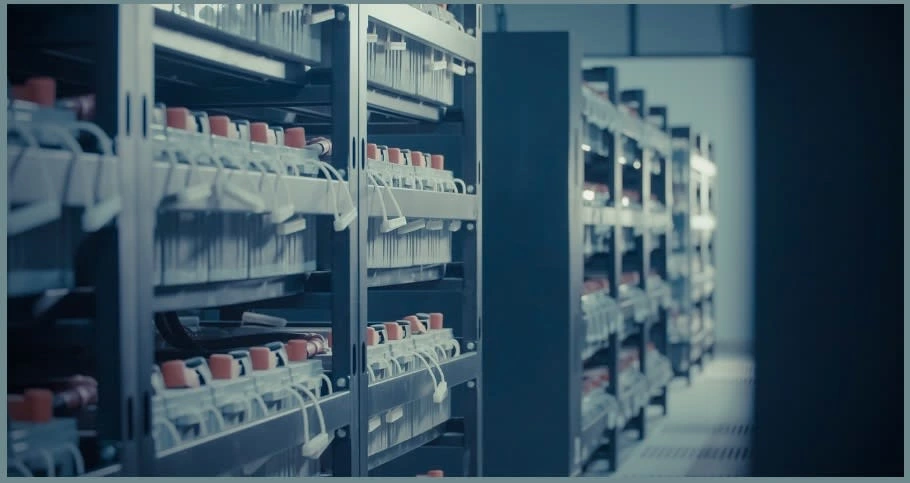What Is an IPO, and What Role Do Data Rooms Play in the Process?

An IPO or initial public offering refers to the first issuance of public shares of a private company. Before an IPO, the company is private and features private shareholders like founders, family, friends, early investors, and venture capitalists. After an IPO, the company is public and accepts investments from public shareholders. Going public is document-intensive and can benefit from a secure, centralized data room.
What Is an Initial Public Offering?
Most companies start as private entities owned by founders and early investors. While some companies stay private, others reach a point in growth where they welcome public investors. A public company can offer public shares once it meets the Securities and Exchange Commission, SEC, requirements. Stock exchanges also have valuation requirements for companies looking to go public. An IPO combines multiple steps privately held companies must take to become publicly traded on a stock exchange.
What Is a Deal or Deal Room?
A virtual deal or data room, VDR, is a secure online repository for confidential business information. Users can upload documents to secure digital storage, invite partners, and implement user-based permissions for each uploaded file. Deal rooms also feature APIs and connectors to facilitate third-party integrations for more efficient document sharing. Businesses can use VDRs for mergers and acquisitions, IPOs, tech licensing, bankruptcy, and other complex processes involving sensitive files.
What Role Do Deal Rooms Play In IPO?

IPOs involve hiring investment banks to market their offering, gauge demand, and set the price for IPO shares. Setting IPO share prices requires thorough underwriting due diligence. Companies can have multiple underwriters managing different IPO processes collaboratively. IPO underwriters handle due diligence, document preparations, filing and sharing, marketing, and IPO issuance. The company must also undergo internal audits, prepare accurate financial statements, and share documents with an investment bank.
Investment banks use internal audits and statements to create stock portfolios, which involve significant documentation and private information disclosure. A deal room can provide secure file exchange services with enhanced encryptions, granular permissioning, and organizational efficiency. Virtual deal rooms offer transparency, control, and security, allowing underwriters, stakeholders, and other counterparts to collaborate throughout the IPO. Here are four roles of a deal room in the initial public offering process:
1. Due Diligence
IPO due diligence involves gathering and providing access to information about the company and its assets. Investment banks, issuers, stakeholders, and other parties involved in issuing IPO shares can all engage in due diligence. A deal room offers a secure space with features designed to synchronize all due diligence processes. Leading deal rooms support diligence requests, document management, communications, and information collection. You can also leverage IPO diligence templates that outline the files and information required for the process.
2. Investor Communication
IPOs feature multiple parties, including auditors, proposal underwriters, lawyers, certified public accountants, SEC experts, and professional investors. Deal rooms give involved parties instant access to data, financial information, and other necessary IPO documents. Issuers can upload all the files required for the IPO preparation and specify permissions for granular document access and sharing. Involved parties can also view documents, make comments, propose edits, request diligence, and monitor progress remotely and in real-time.
3. Document Security
Virtual deal rooms offer a secure space for sharing confidential documents throughout the IPO. SEC can decline IPO requests if the information becomes public before approval. Using a deal room prevents information leaks by encrypting access with advanced AES 256-bit SSL, TSL, and IP restrictions. VDRs also offer private cloud solutions, two-factor authentications, complex passwords, and user-based permission controls. Users can assign specific access privileges to involved parties based on their roles and responsibilities.
4. Workflow Automation
VDRs are central storage for all documents and reports required for the IPO. The rooms offer efficient digital asset management with built-in Q&A, messaging, e-signatures, and other workflow automation tools. VDR software also tracks all changes, which enhances transparency while optimizing workflow tracing. Users can upload bulk files of multiple formats and use the deal room software for automatic allocation, enumeration, and conversions. VDRs also offer improved search and access functions and feature round-the-clock onboarding support.
Find a Reliable IPO Data Room
Cloud-based virtual deal rooms can facilitate various IPO processes, from due diligence to proposals, documentation, and dual-track processing. The VDR software features remote access and permission control, allowing users to share confidential files for IPO preparations and mergers. Contact a VDR software provider today for more about the role and benefits of a data room in your IPO.
Like this project
Posted Dec 28, 2023
The role of data/deal rooms in IPOs








